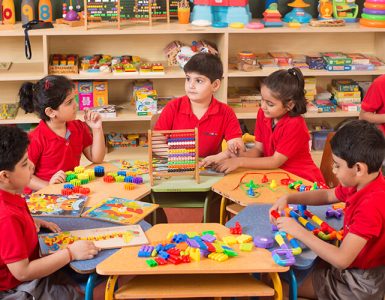The subject of childhood play goes beyond being a pastime; Playtime Learning: Key to Creative Growth and Development in Children serves as a fundamental building block, in a child’s journey of growth and education. Today we will explore the roles that play assumes during development showcasing its various forms. From the whimsical nature of imaginative play to the delight found in physical activities and the sense of camaraderie fostered through social play.
Grasping the Multifaceted Nature of Playtime Learning
Play manifests itself in many ways. Imaginative play, where children create scenarios and characters cultivates their creativity and problem solving abilities. Physical play, involving running, jumping and exploring are crucial for developing motor skills and overall well being. Social play, which entails interaction with peers, plays a role in fostering communication skills and interpersonal connections.
The Bedrock of Life Long Skills
Engaging in play isn’t about enjoyment; it represents a foundation for acquiring crucial life skills. It is through these activities that children learn to navigate their surroundings comprehend themselves better and establish relationships with others.
So why does play holds importance during childhood?
The Importance of Playtime Learning, for Emotional Development

The world of imagination and play is not about having fun; it serves as a training ground where young minds develop and emotions find expression.
Enhancing Cognitive Skills Through Playtime Learning
When children engage in play it activates processes. It nurtures their creativity problem solving abilities and critical thinking skills. Whether they are pretending, building things or solving puzzles they are not simply playing; they are actively developing skills that lay the foundation for learning and intelligence.
Promoting Emotional Development through Play
Play goes beyond enhancing abilities; it also plays a role in emotional development. It allows children to express their feelings gain an understanding of emotions and cultivate empathy. Through activities children learn how to navigate their emotions a skill that is crucial for their overall well being and social interactions.
Interesting Fact; Boosting Brain Activity
Did you know that imaginative play has been linked to increased connections in the brain? This fascinating piece of highlights the impact that play has on brain development.
These insights, from child development experts shed light on how different types of play contribute to a child’s growth and emotional well being.
Active Play; A Pathway to Physical Well being
Engaging in activities like running, climbing and playing ball games is essential for developing motor skills, coordination and overall physical fitness. These activities contribute to muscle growth, balance and agility laying the foundation for an active lifestyle.
Ensuring Safety during Playtime
While encouraging play it is equally important to prioritize childrens safety. This involves creating an environment providing supervision and teaching children about safe play practices. Research demonstrates a link between play and improved physical health among children. Regular physical activity not enhances their development but also correlates with better academic performance and mental well being.
The Role of Play in Nurturing Social Skills
How does play contribute to the cultivation of skills, in children? Playgrounds and playrooms serve a purpose, than being physical spaces; they act as arenas where crucial social and communication skills are nurtured.
Promoting Social Interaction through Playtime Learning
Play allows children to engage, cooperate and negotiate with others. These interactions enable them to learn lessons about sharing, teamwork and understanding perspectives. Both structured and spontaneous group play activities play a role in developing these skills.
Group Play Activity Ideas
Encouraging children to participate in group play activities can range from sports to playdates. These activities not promote well being but also enhance social interaction and teamwork.
Incorporating Play into Daily Routines
Play in Everyday Life
Making play a part of daily routines doesn’t have to be overwhelming. It can be as simple as turning tasks into adventures. Like storytelling during meals or engaging in imaginative games during bath time. The key is infusing activities with a sense of enjoyment.
Striking a Balance between Structured and Unstructured Play
Maintaining a balance between play (activities with goals) and unstructured play (free and spontaneous) is crucial. Both types of play are essential, for a childs development. Should be incorporated into their lives.
it’s important to recognize the significance of play in a child’s development. We urge parents to embrace the value of play as it goes beyond entertainment, for your child. Instead it lays the foundation, for their growth and lifelong educational journey.




